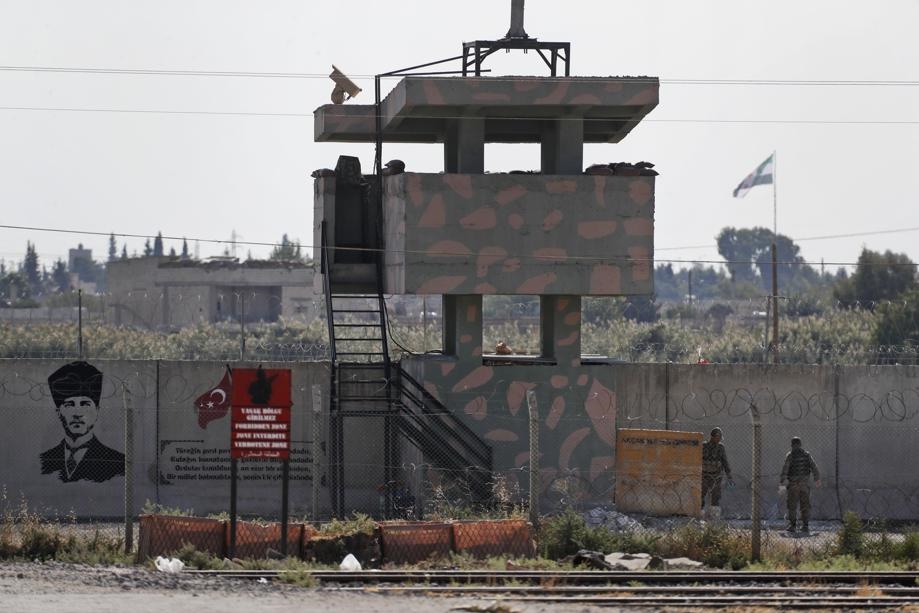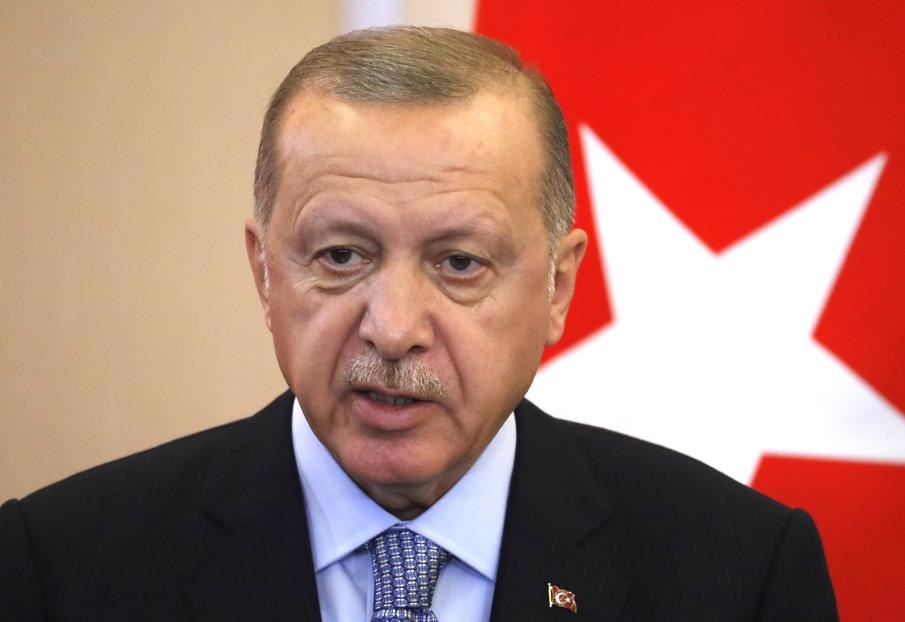
As if being oppressed, being denied basic human rights as well as not being granted a permanent nation state was not enough, imagine getting murdered in the process.
This is the constant battle the Kurds have been losing for centuries now against many countries, especially Turkey.
The Kurds are one of the indigenous people of the Mesopotamian plains, which is now what we identify as south-eastern Turkey, north-eastern Syria, north-Iraq, north-western Iran and south-western Armenia.
Today they form a distinctive community, united through race, culture and language even though they have no standard dialect.
In the early 20th century many Kurds began to consider the creation of a homeland they could take pride in for themselves, a state they would refer to as Kurdistan.
It was only in Iraq where this dream was partially achieved, they managed to obtain a regional government called Iraqi Kurdistan.
Today Kurdistan is a state of uncertainty, due to the fact that Turkey managed to brutally squash any move set up by the Kurds to obtain an independent state.
Turkey successfully did so through the Treaty of Lausanne which set the boundaries of modern Turkey.
This left the Kurds with minority status in their respective countries.
Along with the denial of a Kurdish state, Kurds have struggled to maintain their identity and continue to face discrimination and policies of persecution for many years.
There is and always has been deep seated hostility between the Turkish state and the country’s Kurds.
The Kurds were on a demand for independence and continued to fight. This resulted in a suicide bombing blamed on the Islamic state which killed 33 young activists.
The Kurdish retaliated and attacked Turkish soldiers and police; since then the Turkish government has launched synchronised war on terror against the Kurdish in north east Syria.
To date, Turkey is still determined to give the Kurdish in Syria a very painful life. Recently it is alleged that a Kurdish politician and 10 others were killed by Turkish-based military.
A video circulating shows the bullet infested SUV of the secretary-general of the pro-Kurdish Future Syria Party, surrounded by men dressed in what appears to be military.
Despite the circulation of the video the Turkish-backed Free Syrian Army, also known as the FSA, have denied any involvement in the killings.
The Turkish-backed militants may deny their involvement and maintain their innocence by releasing statement after statement, but the words and attitude of their leader states otherwise.
Turkey’s president Recep Tayyip Erdogan has always maintained a robust attitude against Kurdish nationalism.
The president made it clear that his ultimate goal is to eliminate the Kurdistan Workers Party (PKK), a Kurdish far left militant and political organisation based in Turkey and Iraq that fought the Turkish state for more than three decades.
Kurds have received harsh treatment at the hands of the Turkish authorities for generations.
In 2016, pro-Kurdish media outlets were closed down, more than 11 000 teachers were dismissed or suspended over alleged PKK connections and at least 24 government appointees replaced Kurdish mayors in the country.
Turkey has two goals – to drive the Kurds away from their border and use this area to resettle around two million Syrian refugees.
In times of need like these the Kurds often looked to the US government for refuge and assistance, but it seems that the United States, under the rule of President Donald Trump, had turned a blind eye.
After years, Trump had went in for the ultimate betrayal against the Kurdish, who are suffering in the hands of Turkey.
An alleged phone call on October 6 2019 between Trump and Erdogan was a recipe for disaster for Kurds in northern Syria.
The Kurds have been the United States strongest allies in the fight against the Islamic State militant group since 2014 and have controlled the most peaceful and democratic part of Syria, known as Rojava since the start of the civil war in 2011.
Even so, Trump tactically gave the green light to Erdogan to launch a military invasion against the Kurds, which began days later.
Trump providing the green light for the invasion in Rojava to the Turkish has resulted in the murders of 300 civilians, including children and women, as well as damage to civilian infrastructure.
Recent developments have rendered the announcement of a five-day ceasefire in Syria from the Turkish president.
However it seems that a day after the announcement shelling and artillery fire continued.
Turkey’s attacks have continued, targeting medical workers, ambulances and medical points.
Turkey is violating the ceasefire agreement by continuing to attack north-east Syria.
The rest of the world has seemed to catch on very fast about the events that have been taking place and is not pleased with Turkey’s behaviour.
The disapproval has resulted in a call to boycott Turkish government-sponsored academic and cultural institutions.
This call is also for cultural workers as well as organisations to boycott events, activities, agreements or projects involving Turkish government or government-funded cultural institutions.
International venues and festivals have been requested to decline any sort of sponsorship or partnership from the Turkish government.
Not only does it end there, European powers have temporarily halted dealing arms with Turkey over the military offence in north-east Syria.
Europe’s top weapon exporters, such as France, Germany, Spain and Italy have banned all arms sales to Turkey.
Even the Kurdish South Africans are alarmed about the situation in Syria and are not taking it lightly.
By standing up for their own, Kurdish South Africans have held a demonstration in Cape Town outside Parliament against the invasion of northern Syria by Turkish forces.
They emphasised that they want the invasion to stop and that they prefer and demand that a peaceful dialogue takes place with all the parties concerned.
They want the South African government to take diplomatic and political stances to say no to the human right abuses committed by Turkey, as well as for South Africa to put pressure on the Turkish government to stop the invasion.
Kurdish South Africans are not alone: South Africa itself has a policy on the Kurdish struggle.
At the last policy conference the ANC said that it supports “the Kurdish people’s struggle for political rights, peace and justice in the Middle East and urges all role players to engage for a political solution in the conflict”.
The ANC called for the release of Kurdish leaders and all political prisoners.
However the ANC’s recent dealings with President Erdogan’s Islamist party in Turkey raised several eyebrows as far as the Kurdish policy that was adopted is concerned.
The ANC signed a memorandum of understanding with Turkey’s ruling party (AKP) on August 1 in Ankara during a visit to Turkey.
The memorandum, which reportedly includes cooperation in the field of education, the promotion of trade and other areas, was signed by the AKP deputy chairperson, and the secretary-general of the ANC.
The dealings even resulted in the two parties referring to one another as a “sister party”.
It seems though that the ANC has forgotten and is contradicting the 54th resolution that was made at Nasrec.
The resolution stated that the ANC supposedly supports the Kurdish people’s struggle for human and political rights.
Does it make sense to form relations with a so called “sister party” that is in total contradiction to what you claim to stand for?
How is it that the ANC is being ignorant of the human rights violations the AKP party is implicated with and still proceeded to make deals with Turkey?
How is jumping into bed with the Turkish party offering healing and peace to the Kurdish people who are at the mercy of Turkey?
What kind of example is the ANC setting to other countries in the world, because this surely seems as a condoning of their behaviour?
Furthermore, the silence of the ministry of international relations and cooperation is very alarming.
As a member of the United Nations, the minister is expected to achieve the vision of an African continent which is prosperous peaceful, democratic, non-racial and united, and which contributes to a world that is just and equitable.
Yet to date, the minister has not once addressed or raised any concern about Turkey’s unjust behaviour towards the Kurds.
A concerned party member of the ANC, who spoke anonymously, argued that intimate relations with Erdogan and his party are not good for South Africa on international platforms and would damage efforts to conduct foreign policy.
Even South Africa’s heroic leader Nelson Mandela had previously declined a peace prize from Turkey on the grounds that human rights violations were committed against the Kurdish minority in Turkey.
The ANC is indeed shaming South Africa, and letting down not only the oppressed Kurdish but the rest of the world as well.
Pahle is the managing director of SIP Media
 | ||||||||||||||||||||||||||
Get in touchCity Press | ||||||||||||||||||||||||||
| ||||||||||||||||||||||||||
| Rise above the clutter | Choose your news | City Press in your inbox | ||||||||||||||||||||||||||
| City Press is an agenda-setting South African news brand that publishes across platforms. Its flagship print edition is distributed on a Sunday. |




 Publications
Publications
 Partners
Partners










